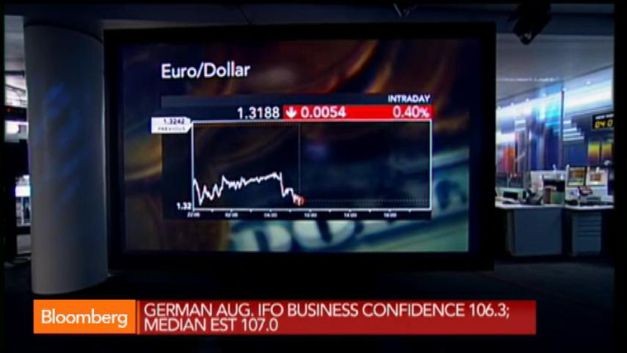Gross Says Wage Growth Not Enough to Sustain Bloomberg Business
Post on: 28 Июль, 2015 No Comment

(Bloomberg) — Bill Gross said growth in wages lagging behind increases in U.S. employment gains makes it difficult to maintain the economic expansion at a pace that the Federal Reserve would like to see to raise interest rates.
“It’s about wages” as to why the U.S. 10-year note yield is so low, Janus Capital Group Inc.’s Gross said in a radio interview on “Bloomberg Surveillance” with Tom Keene and Mike McKee. “The market is conflicted over what the Fed will do.’
Employment rose a more than forecast 252,000 positions in December and the jobless rate declined to 5.6 percent, a Labor Department report showed. The report wasn’t all good news as earnings unexpectedly declined 0.2 percent from a month earlier.
‘‘We are creating a lot of jobs, part of it may be part-time,” said Gross, who used to run the world’s biggest bond fund before joining Janus in September. “The creation of jobs is one thing, the creation of wages is another. Minus 0.2 percent in the month and a 1.7 percent annual hourly increase, just isn’t enough to sustain a U.S. economy.”
The Janus Global Unconstrained Bond Fund, which Gross has run since Oct. 6, expanded to $1.2 billion in assets as of Nov. 28, from $13 million before he joined Janus, according to data compiled by Bloomberg.
Unconstrained Fund
Gross ran the world’s biggest bond fund, the $143.4 billion Pimco Total Return Fund, at Pacific Investment Management Co. the $1.87 trillion firm he co-founded in 1971, before abruptly departing for Denver-based Janus on Sept. 26.
The Janus Unconstrained fund lost 1.1 percent in the past three months as of Jan. 6, beating 51 percent of similar funds, according to Morningstar data.
Minutes of the Federal Open Market Committee’s Dec. 16-17 meeting, released on Jan. 7, showed the committee agreed the U.S. economy was likely to continue improving, leading to more job gains. The minutes also repeated Chair Janet Yellen’s predictions last month that inflation would move toward the Fed’s target as the labor market strengthens.
The Fed’s preferred gauge, the personal consumption expenditures price index, has remained below the target for 31 consecutive months and has been edging lower since May with the plunge in oil. The index showed prices rose 1.2 percent in the year through November.
Rate Expectations
Money market derivatives show about a 52 percent probability that the Fed lifts its zero-to-0.25 percent target rate range in September, down from 56.9 percent yesterday, Bloomberg data shows. Federal funds futures see the policy rate at 0.53 percent in December and 1.36 percent a year later. The markets projections for the path for funds trails that of Fed officials, which saw 1.125 percent by the end of this year and to 2.5 in December 2016, according to the median of officials quarterly forecasts released in December.
“The Fed would want a lot a jobs,” Gross said. “The Fed would want a lot of growth. They just would not want a lot of inflation. Certainly with the hourly wage number being what it is, at 1.7 percent, if they are to reach their 2 percent inflation target that basically means they are going to need 3 to 3.5 percent wage increases going forward.”
Gross predicts the central bank will lift rates for the first time since 2006 sometime this year by about 0.5 percentage points.
To contact the reporter on this story: Liz Capo McCormick in New York at emccormick7@bloomberg.net
To contact the editors responsible for this story: Dave Liedtka at dliedtka@bloomberg.net Kenneth Pringle














